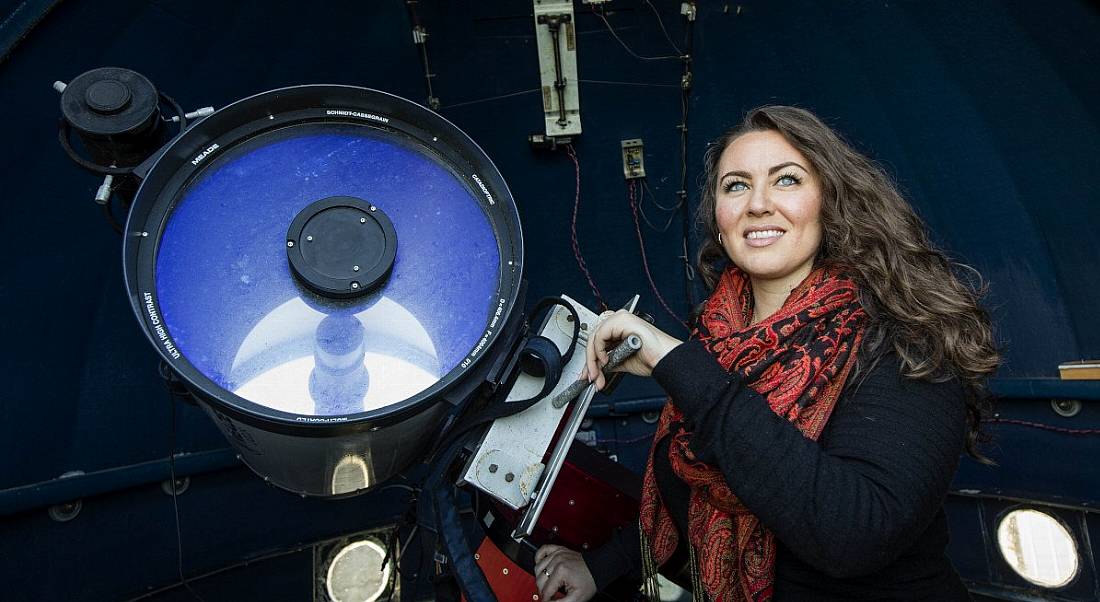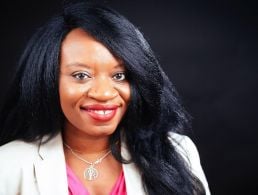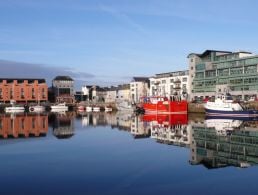Speaking at a BT Young Scientist event, Minister Simon Harris highlighted the work ahead for his new department in ensuring diversity and inclusion in STEM.
Speaking at an event hosted as part of the 2021 BT Young Scientist and Technology Exhibition (BTYSTE), Minister Simon Harris, TD, commended the organisers for finding a way to bring the event to fruition amid challenging times. “I can think of no more important year ever in our history as a country to be having a Young Scientist exhibition,” said the Minister for Further and Higher Education, Research, Innovation and Science.
Science and technology, Harris added, is no longer a distant concept to the public but something that aligns with their immediate concerns. “We’re all watching the news every day, wondering will there be a scientific breakthrough, has that vaccine been approved yet? We’re all using technology to connect and communicate.”
Harris was speaking at a Tech Starter panel discussion hosted by Connecting Women in Technology (CWIT) in partnership with BT. Showcasing ‘Bright Futures in Technology’, the online event set out to encourage young participants in the audience to explore careers in STEM.
The establishment of Harris’s all-new department focused on STEM, innovation and higher education shows the Government’s own commitment to this cause, and Harris was unequivocal that the future of STEM is vital for the future of Ireland. “The battle for the future wellbeing of our country used to be about, can we get people to come and locate a big factory in our town or in our county? The battle for the future of our country now is going to be about the talent, ingenuity and the brains of the people in this country.”
‘We need to do more to make sure that when we look at science, it looks back at us like society’
– SIMON HARRIS, TD
However, Harris acknowledged that there is much to be done to ensure equal opportunities in STEM. “There are many groups in our society that are fighting today to be given an equal opportunity to have a career in STEM. People from economically disadvantaged backgrounds. Minority communities. People with disabilities. LGBTQI+ communities are underrepresented as well. So we have a lot of doors to open to make it clear that STEM is for everyone. Science is for everyone. And we need every single person in Ireland to know that they can have a career in STEM.”
For Harris, a first step in the right direction will be to increase the number of women in leadership in Irish universities. Championing the idea that you need to see it to be it, he said: “We need to do more to make sure that when we look at science, it looks back at us like society.”
The power of one
Later in the discussion, MC Ann O’Dea, co-founder of Silicon Republic, asked Dr Sahar Alialy about the importance of representation. As an operations manager at Intel, Alialy said she currently manages a large male-dominated team, so is well aware of the need for more women in STEM. While she said it can be challenging to lead as something of an outsider, it can also be rewarding. In fact, she prefers to see opportunity in “the power of being the ‘only’ in work or academia”.
Revisiting Harris’s point about visibility, she added: “We need to see that to understand how we can break barriers, to see what is possible for us. Then we can see how we can transfer this and make it possible for others to see what can be waiting for them if you become a STEM professional.”
Edel Browne, a past participant in BTYSTE who saw many successes from further development of her student project, said the same encouragement is required in entrepreneurship. Browne, who now works at Accenture, founded Free Feet Medical on the basis of her Young Scientist project and in 2019 was featured on Forbes’ 30 Under 30 list.
“It’s as important to emphasise that it is a viable career path for young women in particular to get into, that tech and STEM entrepreneurship isn’t just something for older people or men, that it is for everyone, because it really is. And it also helps to bring different ideas to the table that could lead to huge breakthroughs,” she said.
“It doesn’t matter who you are, or what background you come from, or what connections you have; if the idea is good enough, I think that’s something that should be able to succeed. And that’s what we need to be aiming for from a funding and support structure perspective.”
Start in STEM
As well as publicising role models, mentoring has proven to be a key tool in increasing diversity in STEM, and this is something former BTYSTE winner Abdul Abubakar has found a passion for. For about a decade, the software engineer at Ericsson has devoted his spare time to working with students who are struggling with maths.
Abubakar came to Ireland at 15 and is from a Somali-Kenyan background. “I come from a very humble background. My parents, none of them had a formal education,” he said, noting that what he has achieved so far is “against the odds”.
He realises the role model status that comes with his success, and is grateful for the opportunity to support others from a similar background with his platform. “It’s definitely very important to have people to look up to, and I’m honoured to have the opportunity to be that person.”
For Abubakar, STEM is the best route for students who may not have a set plan for the future and want to keep their options open. “The kids will have no idea what to do so I try to push for them and explain to them the importance of studying science, and the endless opportunities in science. If you want to do business, you can always do business after science. But if you go with business first, it’s very difficult for you to move into science,” he advised.
“STEM broadens your options. Even if you want to end up in business, you can always start in STEM.”
This is very much the journey taken by Hila Meller, vice-president of security in Europe for BT Global. With a bachelor’s degree in computer science already on her résumé, Meller went back to do an executive MBA later in her career.
Meller also related to Abubakar’s experience as an immigrant. Originally from Israel, she has been based in Italy for the past decade. “For years I felt kind of inferior because of being a foreigner and having an accent, and also my working-class background,” she said.
“It took me a journey to understand that this actually makes you more powerful. It makes you more resilient in a way, and to be proud of who you are.”
The complete Bright Futures in Technology panel discussion is available to watch back here.




